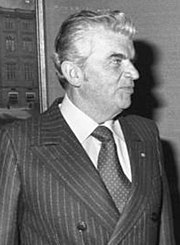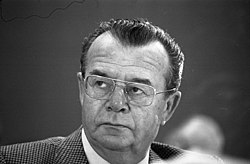
The 2000 North Rhine-Westphalia state election was held on 14 May 2000 to elect the 13th Landtag of North Rhine-Westphalia. The outgoing government was a coalition of the Social Democratic Party (SPD) and The Greens led by Minister-President Wolfgang Clement.

The Landtag of Hesse is the unicameral parliament of the State of Hesse in the Federal Republic of Germany. It convenes in the Stadtschloss in Wiesbaden. As a legislature it is responsible for passing laws at the state level and enacting the budget. Its most important function is to elect and control the state government. The constitution of the State of Hesse describes the role of the Landtag in sections 75 to 99.

The 1995 North Rhine-Westphalia state election was held on 14 May 1995 to elect the 12th Landtag of North Rhine-Westphalia. The outgoing government was a majority of the Social Democratic Party (SPD), led by Minister-President Johannes Rau.

The 2021 Mecklenburg-Vorpommern state election was held on 26 September 2021 to elect the 8th Landtag of Mecklenburg-Vorpommern. The incumbent government is a coalition of the Social Democratic Party (SPD) and Christian Democratic Union (CDU) led by Minister President Manuela Schwesig.
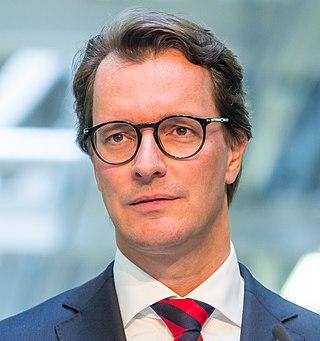
The 2022 North Rhine-Westphalia state election was held on 15 May 2022 to elect the 18th Landtag of North Rhine-Westphalia. The outgoing government was a coalition of the Christian Democratic Union (CDU) and Free Democratic Party (FDP) led by Minister-President Hendrik Wüst.
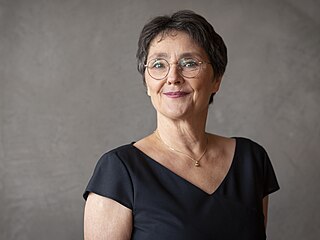
The 2022 Schleswig-Holstein state election was held on 8 May 2022 to elect the 20th Landtag of Schleswig-Holstein. The outgoing government was a coalition of the Christian Democratic Union (CDU), The Greens, and the Free Democratic Party (FDP), led by Minister-President Daniel Günther.

The 2023 Hessian state elections was held on Sunday October 8, to elect the 21st Landtag of Hesse. The outgoing government was a coalition of the Christian Democratic Union and The Greens, led by Minister-President Boris Rhein of the CDU. The 2023 Bavarian state election was held the same day.

The 1975 North Rhine-Westphalia state election was held on 4 May 1975 to elect the 8th Landtag of North Rhine-Westphalia. The outgoing government was a coalition of the Social Democratic Party (SPD) and Free Democratic Party (FDP) led by Minister-President Heinz Kühn.
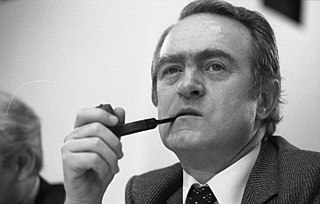
The 1980 North Rhine-Westphalia state election was held on 11 May 1980 to elect the 9th Landtag of North Rhine-Westphalia. The outgoing government was a coalition of the Social Democratic Party (SPD) and Free Democratic Party (FDP) led by Minister-President Johannes Rau.

The 1987 Hessian state election was held on 5 April 1987 to elect the 12th Landtag of Hesse. The outgoing government was a coalition of the Social Democratic Party (SPD) and The Greens led by outgoing Minister-President Holger Börner, who retired at the election. The SPD campaign was led by finance minister Hans Krollmann, who ran to succeed him.

The 1983 Hessian state election was held on 25 September 1983 to elect the 11th Landtag of Hesse. The outgoing government was a caretaker cabinet of the Social Democratic Party (SPD) led by Minister-President Holger Börner. The election was called after the Landtag's failure to elect a government after the 1982 election.

The 1982 Hessian state election was held on 26 September 1982 to elect the 10th Landtag of Hesse. The outgoing government was a coalition of the Social Democratic Party (SPD) and Free Democratic Party (FDP) led by Minister-President Holger Börner.

The 1978 Hessian state election was held on 8 October 1978 to elect the 9th Landtag of Hesse. The outgoing government was a coalition of the Social Democratic Party (SPD) and Free Democratic Party (FDP) led by Minister-President Holger Börner.

The 1970 Hessian state election was held on 8 November 1970 to elect the 7th Landtag of Hesse. The outgoing government was a majority of the Social Democratic Party (SPD) led by Minister-President Albert Osswald.

The 1966 Hessian state election was held on 6 November 1966 to elect the 6th Landtag of Hesse. The outgoing government was a majority of the Social Democratic Party (SPD) and All-German Party (GDP) led by Minister-President Georg-August Zinn.

The 1962 Hessian state election was held on 11 November 1962 to elect the 5th Landtag of Hesse. The outgoing government was a coalition of the Social Democratic Party (SPD) and All-German Party (GDP) led by Minister-President Georg-August Zinn.

The 1958 Hessian state election was held on 23 November 1958 to elect the 4th Landtag of Hesse. The outgoing government was a coalition of the Social Democratic Party (SPD) and All-German Bloc/League of Expellees (GB/BHE) led by Minister-President Georg-August Zinn.

The 1954 Hessian state election was held on 28 November 1954 to elect the 3rd Landtag of Hesse. The outgoing government was a majority of the Social Democratic Party (SPD) led by Minister-President Georg-August Zinn.

The 1950 Hessian state election was held on 19 November 1950 to elect the 2nd Landtag of Hesse. The outgoing government was a grand coalition of the Social Democratic Party (SPD) and Christian Democratic Union (CDU) led by Minister-President Christian Stock, who retired at the election. He was succeeded as SPD lead candidate by Georg-August Zinn.

The December 1946 Hessian state election was held on 1 December 1946 to elect the 1st Landtag of Hesse. The outgoing government was an all-party coalition led by Minister-President Karl Geiler.
This page is based on this
Wikipedia article Text is available under the
CC BY-SA 4.0 license; additional terms may apply.
Images, videos and audio are available under their respective licenses.


